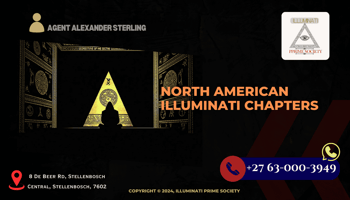Explore the enigmatic worlds of Freemasonry and the Illuminati, uncovering their origins, beliefs,...
The Philosophy Behind The Illuminati

Unravel the enigmatic beliefs and philosophies that guide the secretive Illuminati.
-
“Ready to share your success story?” → Contact Form
-
“Learn directly from Agent Alexander Sterling” → Agent’s Blog
-
“Speak privately about your path” → Talk to Agent on WhatsApp ✅
- “Explore more member journeys” → /illuminati-member-testimonials
Origins of Illuminati Ideology
The origins of Illuminati ideology can be traced back to the 18th century, when the Bavarian Illuminati was founded by Adam Weishaupt in 1776. The initial purpose of this secret society was to promote Enlightenment ideals such as rationality, secularism, and the pursuit of knowledge. Weishaupt envisioned a world where superstition, tyranny, and inequality were abolished, and a new order based on reason and meritocracy was established.
The Illuminati's philosophical roots are deeply entwined with the principles of the Age of Enlightenment. This period emphasized humanism, the power of individual thought, and the importance of intellectual progress. The society's clandestine nature allowed its members to freely exchange radical ideas without fear of persecution, thus fostering a culture of intellectual and philosophical advancement.
Core Philosophical Tenets
The core philosophical tenets of the Illuminati are centered around the pursuit of enlightenment, knowledge, and personal growth. At its heart, the Illuminati promotes the idea that every individual has the potential for greatness and that this potential can be unlocked through education, self-discipline, and a commitment to truth.
Key tenets include the belief in the power of knowledge as a tool for transformation, the importance of questioning established norms and dogmas, and the value of meritocracy over inherited privilege. The Illuminati also stress the need for a balanced and harmonious society where power is distributed based on ability and wisdom rather than wealth and birthright.
Symbolism and its Significance
Symbolism plays a crucial role in Illuminati philosophy, with various symbols representing different aspects of their beliefs and objectives. One of the most well-known symbols is the 'All-Seeing Eye,' often interpreted as a representation of the watchful and enlightened nature of the society, always seeking knowledge and truth.
Other significant symbols include the 'Pyramid,' which signifies strength and endurance, and the 'Owl of Minerva,' representing wisdom and the pursuit of knowledge. These symbols serve not only as identifiers of the society but also as reminders of the principles and values that members strive to embody in their personal and collective journeys.
-
“Ready to share your success story?” → Contact Form
-
“Learn directly from Agent Alexander Sterling” → Agent’s Blog
-
“Speak privately about your path” → Talk to Agent on WhatsApp ✅
- “Explore more member journeys” → /illuminati-member-testimonials
Conspiracy Theories and Misconceptions
The Illuminati has long been the subject of numerous conspiracy theories and misconceptions, often portrayed as a malevolent force seeking global domination. These theories are typically fueled by the society's secretive nature and the symbolism associated with it, which is often misunderstood or misrepresented.
Contrary to these beliefs, the true philosophy of the Illuminati is grounded in the pursuit of knowledge, enlightenment, and the betterment of society. While the organization does operate discreetly, this is primarily to protect its members and their progressive ideas from persecution and to maintain the integrity of its mission.
Modern Interpretations and Influence
In modern times, the Illuminati's philosophy continues to inspire various groups and individuals who seek personal and societal transformation. The society's emphasis on knowledge, enlightenment, and meritocracy resonates with those who aspire to make meaningful contributions to the world.
The Illuminati Prime Society, for instance, has adapted these age-old principles to contemporary contexts, offering memberships that provide access to esoteric education, elite networking opportunities, and strategic mentorship. By aligning with the timeless values of the original Illuminati, the society aims to empower its members to achieve success, influence, and spiritual enlightenment in today's complex world.
.png?width=100&height=100&name=Illuminati%20Prime%20Society%20Logo%20(1).png)


